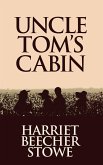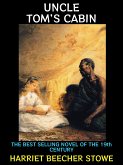How long has the United States been trying to get its hands on Cuba? Waiting for Uncle John, an exciting and fast paced historical novel, tells the story of how a few regiments of soldiers, armed and supported by leading American politicians, set out to capture Cuba from Spain in 1851, the first of various attempts over two centuries to seize control of the island that has bedeviled American life back to Thomas Jefferson. A story of love, adventure and politics, Uncle John reflects the turbulence of the 1850s in America, the crucial years leading up to the Civil War. Colonel Will Crittenden, nephew of Attorney General John J. Crittenden, a Kentucky Unionist, wants nothing to do with the plan to annex Cuba and its quarter million slaves. A West Point graduate, decorated veteran of the Mexican War and bearer of a famous political name, Will Crittenden resists the various entreaties politicians make to convince him to lead their illegal expedition. But the beautiful and exotic Lucy Holcombe is a tougher adversary. "Tall and good-looking," Lucy writes of her love affair with Will, "with cold, quiet manner and large commanding eyes - a perfect prince of knowledge, at whose feet I would sit with timid wonder and love." Her novel, Free Flag of Cuba, becomes the antidote to Uncle Tom's Cabin, regarded in the South as slander. Lucy goes on to become the "queen of the South," her picture on Confederate banknotes. Well-armed, sailing on a steamer purchased with money raised across the country from Americans believing in "Manifest Destiny," five hundred soldiers set out from New Orleans in the summer of 1851 under Narciso Lopez, a rebel Spanish general. Nothing is secret. For months, U.S. newspapers, more jingoistic even than Congress after the U.S. victory in the Mexican War, have been beating the drums. By what right dare Cuba defy the United States? Next stop in Manifest Destiny: Havana. Nothing has changed.
Dieser Download kann aus rechtlichen Gründen nur mit Rechnungsadresse in A, D ausgeliefert werden.









